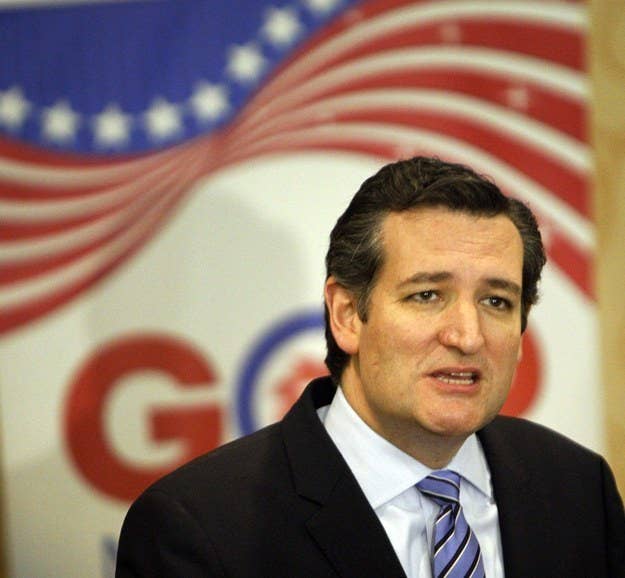
WASHINGTON — Texas Sen. Ted Cruz is pretty angry at the Senate Republican's election arm for getting involved in primaries this cycle but he has no plans to step down from his official role on the committee as a vice chairman.
The latest chapter of the spat between Cruz and the National Republican Senatorial Committee comes after the NRSC aggressively helped Mississippi's incumbent Sen. Thad Cochran beat State Sen. Chris McDaniel in one of the most contentious (and strange) primaries of the cycle. McDaniel has yet to concede in the race and is mounting a legal challenge to contest the results.
Cruz weighed in on the race first on Monday night, speaking with conservative radio host Mark Levin, saying, "The conduct of the Washington, D.C., machine in the Mississippi runoff was incredibly disappointing." On Tuesday, Cruz reiterated that claim to reporters in Washington. He would not specifically say if he meant the NRSC or the Cochran campaign when he referred to the "Washington, D.C., machine," only saying, "I'll let my statement speak for itself."
But Cruz indicated that he would not resign as the NRSC's vice chair because they "share the ultimate goal of electing republicans in November." He had made similar comments in March and now appears to still be committed to staying on once the primary season has passed.
"When I signed on as vice chair at the NRSC, it was based on a explicit commitment from leadership that the NRSC was going to stay out of primaries. Had they not made that commitment I would not have taken on that role," he said. "I participated in the NRSC early on and when the decision was made for them to do otherwise, I stopped participating because I think Washington insiders are notoriously poor at picking winners and losers in primaries and indeed the Mississippi primary is exhibit A for why the NRSC should stay out of primaries."
"I do share the same objective the NRSC shares of winning general election seats in November," he added. "I plan to work very hard and intend to work very, very hard between now and November to make that happen."
McDaniel's main charge is that Cochran's campaign, by encouraging black (and primarily Democratic) voters to support Cochran in the run-off. The campaign has even offered a cash prize to anyone who can show evidence of voter fraud. Cruz had claimed on Levin's show that "what we know at the outset is that Chris McDaniel won a sizable majority of Republicans who voted in the run-off."
"The evidence for that are the numbers in the race," he told reporters on Tuesday. "It was unfortunate to see the D.C. political machine spending substantial money to urge 30,000 to 40,000 Democrats to vote in the Republican primary. They did not do so in an effort to grow the party, to attract their support substantively for Republican ideas."
"Rather the ads that were run made false racial charges, and made no effort to secure those votes in the general election," he continued. "The votes that decided that primary were from Democrats who are all but certain to vote Democratic in the general."
Asked again by a reporter what evidence he had that it was Democrats who pushed Cochran over the edge — as Mississippi does not ask for party identification — Cruz repeated that "the evidence for that are the numbers in the race."
Cruz would not say exactly who he meant by the "D.C. political machine." He did say that he would not "work or facilitate" the efforts of the NRSC as long they are engaged in primaries. Cruz himself had said previously that he would not play in primaries either, and until Monday had stayed publicly neutral in Mississippi.
Brad Dayspring, a spokesman for the NRSC, would not comment on Cruz's continued role at the NRSC but said the committee's work in Mississippi was focused on boosting Republican turnout.
"Every dollar spent and man power hour invested by the NRSC in Mississippi focused on Republicans," Dayspring said in an email. "Winning campaigns focus on the ground game, successfully targeting and turning out persuadable voters. Our focus was turning out Republicans who were open to voting for Senator Cochran but didn't vote in the June 3 primary… These investments helped to successfully grow the electorate, and when all was said and done, Senator Cochran picked up well over ten thousand additional Republican votes. In fact, both candidates improved turnout and grew the electorate, Cochran just grew it more."
